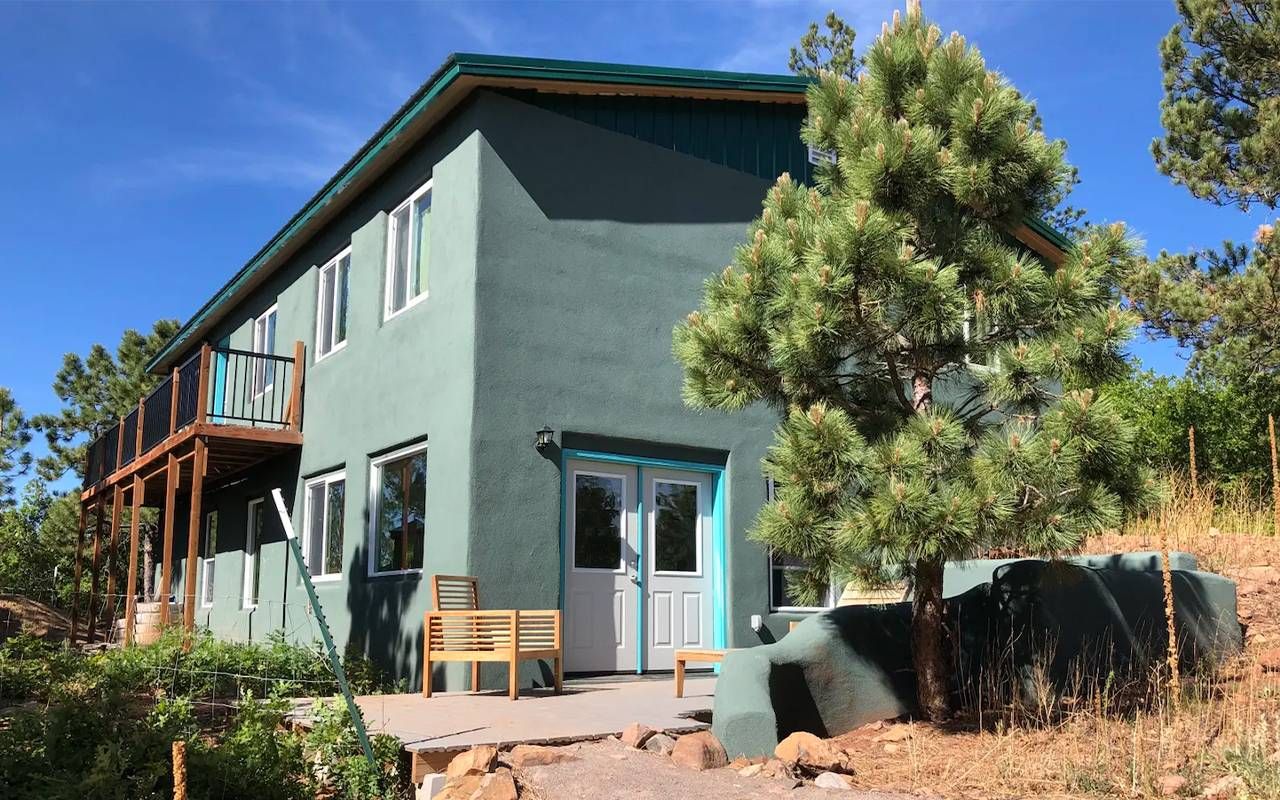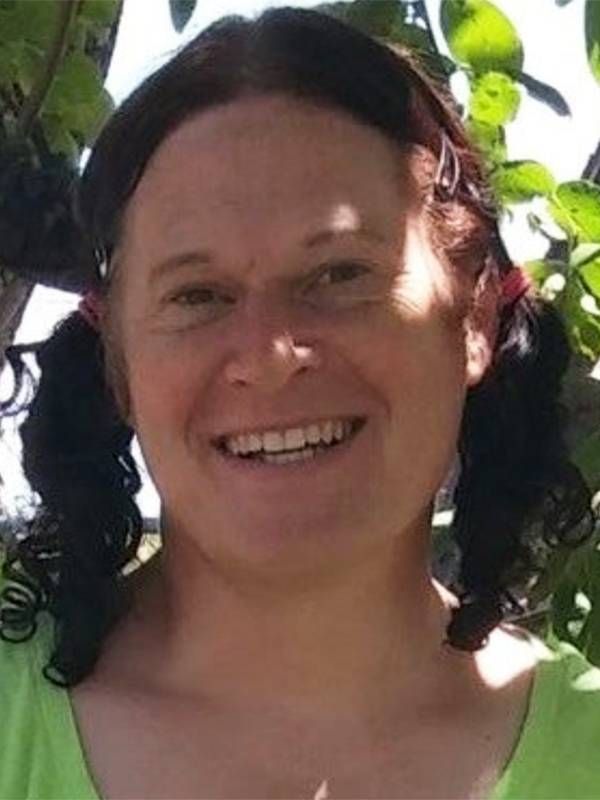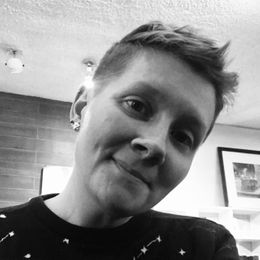Making Space for Autistic Adults
Autistic adults are often not given a seat at the proverbial table — and that sometimes means building their own
Editor’s note: In the following story, writer AJ Odasso uses primarily “identity-first” rather than “person-first” language.
In the landscape of U.S.-based Autism activism, the Southwest isn't a region that usually comes to mind. The vast majority of Autism-oriented nonprofits, educational institutions, research programs and other organizations are based on the East Coast.

In recent years, the most visible of these, Autism Speaks, has come under scrutiny. Their ableist actions toward those they claim to serve range from advertising campaigns that characterize Autism as an entity that holds children hostage (according to The New York Times, one advertising campaign read: "We have your son. We will make sure he will no longer be able to care for himself or interact socially as long as he lives.") to their marked absence of Autistic adults in positions of leadership.
Speaking of Autistic Adults
Autistic adults aren't the usual population that comes to mind in these conversations, either. Typically, Autism is viewed as a condition — rather than a neurotype — found only in toddlers, children, and teenagers.
"Since I'm not good at social media, I am no longer feeling included in much of anything. It may be that many of us are feeling that way. "
As a result, Autistic adults face widespread abuse, dismissal and discrimination. It took the Centers for Disease Control and Prevention (CDC) until 2017 to conduct research on the prevalence of Autism Spectrum diagnoses among adults.
According to the report, "An estimated 5,437,988 (2.21%) of adults in the United States have [Autism Spectrum Disorder]."
Organizations like the Autistic Self Advocacy Network (ASAN) were not only founded by Autistic people for Autistic people, but have also provided platforms where neurodiverse voices can flourish. The Autistic Press, ASAN's publishing arm, has published several anthologies of essays by Autistic youth and adults aimed at providing self-determined support and resources.
In recent years, Autistic adults have been visibly engaged in activism efforts even independent of ASAN. In light of a 2017 CNN report on the dire Autistic life-expectation statistics released by the American Journal of Public Health, Autistic adults have increasingly used both personal social media pages and platforms like Vox to draw attention to the community's crisis.
Autistic Activism in the Land of Enchantment
This proliferation of Autistic activism has been especially visible in the disability community of New Mexico. Divergent Labs, a self-described "non-profit dedicated to the growth, empowerment, and inclusion of Autistic people," was founded by Albuquerque-native Star Ford, herself a member of the Autistic community.
Ford is also the founder of Ocate Cliffs, the flagship project of Divergent Labs, which operates as a retreat center staffed and run for Autistic people, by Autistic people. She also serves as Programs Manager at Ocate Cliffs, which occupies 159 acres in the Sangre Cristo Mountains.

With the exception of a pause during the COVID-19 pandemic, the retreat center has been in operation since 2013, when the land zoning was approved. It began with a handful of domestic work retreats in the years following. The first international work retreats aimed at bringing the grounds up to code and building facilities for workshops and social gatherings were held in 2017 and 2018. In 2019, inspections were completed and accommodations opened for use.
Ford was available for a brief interview and kind enough to answer the following questions:
AJ Odasso: What gave you the initial idea for Ocate Cliffs? What need did you see in the New Mexico community that you hope it now fills?
Star Ford: My life had been going towards a project like this for a long time. It combines my interests in sustainable building, nature, retreats and disability rights. When I attended Autreat, an annual retreat for Autistic people that is no longer being held, it opened my eyes to the power of Autistic space. That means an environment where Autistic ways of thinking and communicating are prioritized. It makes a lot of people feel less socially disabled, since part of the disability is simply a factor of being in a neurological minority.
What has been the most rewarding aspect of running an Autistic space, with other Autistic people, for Autistic people? What has been the most challenging?
The most rewarding thing for me is seeing deep changes stirring, and occasionally someone making a big visible change in their life after coming. The mountain environment and the Autistic freedom can really reach people and be therapeutic, even in cases where the experience is difficult. For me, I also really like how we simplify human needs down to basics — we focus on food and shelter and inclusive work and interactions, rather than on entertainment or fanciness, so I always feel life is easy and uncluttered there.
The hard thing is getting a critical mass of people there at the same time. One of the main parts of my disability is in marketing and networking, and we haven't yet found someone who is good at this and can help us with it. Another hard part is when people come with a lot of past baggage and their needs are so extensive that we can't make that much of a difference. We're not set up as a psychotherapy service to Autistic people at all; it's more like people come here to serve each other and serve guests, but sometimes people need something else.
What are your hopes for Ocate Cliffs in the next handful of years (and beyond)?
I'd like to become well known, and be used for more retreats among disabled people, as well as just anyone. Along with this could come more income and the ability to fundraise for our second building — with that we'll be able to host much larger groups with fully accessible bedrooms.
What challenges does the Autistic community in New Mexico face? What advice would you give to young activists and community organizers?
I think since a lot of the communication among activists and organizers has turned to social media, it has become extremely fragmented. Since I'm not good at social media, I am no longer feeling included in much of anything. It may be that many of us are feeling that way.
Did You Know?
Actor Sir Anthony Hopkins was diagnosed later in life with Asperger's syndrome, a type of Autism Spectrum Disorder. Actor and comedian Dan Aykroyd also revealed he was diagnosed with Asperger's in the 1980s.
I think also that the ABA (Applied Behavior Analysis) industry is getting more powerful and the policymakers have simply stopped talking to us. Any of us that are trying to plead for better treatment for all Autistic people are being drowned out by the vast money machine of that industry.
It is hard to give advice about all of this, but in my heart, I feel that efforts to get to know each other in person (not just online) and talk to all different kinds of people might be the best thing. Collaboration between Autistic and allistic (a term coined within the Autistic community to describe non-Autistic people) people, as well as across organizations, is vital to build a culture of full inclusion.
Activists like Ford are changing the misconceptions surrounding Autistic adults. They are also changing the way we are viewed in the workplace — not just in New Mexico, but across the U.S.
Shifting the Paradigm at Work
Where once many Autistic adults were only able to find low-wage, entry-level work, companies across major industries in the U.S. and worldwide have begun to take note of unique strengths we have to offer, like hyperfocus and meticulous attention to detail.
"The mountain environment and the Autistic freedom can really reach people and be therapeutic"
Julie Esris, who works as an illustrator for the Boston-based nonprofit Brain Power (which offers educational support to neurodiverse students, their families, and those who teach them), is a perfect example.
For years, Esris struggled to find a suitable career. She studied animation as an undergraduate, but found the gatekeeping and expectations of that particular field unreasonably demanding and judgmental. Subsequently, she pursued an M.A. in Library Science, finding that a sequence of library jobs were no better suited than her previous career choice.
In response to the popular misconception that Autistic adults should be able to find work in various tech fields due to the image of high-profile Autistic people like Bill Gates, Esris dispels the myth.
"What you're seeing is an illusion," Esris explains. "What I've noticed is — most of the Autistic people I've interacted with are like me, where they also meet the criteria for Nonverbal Learning Disability. This makes things like math and programming really hard."
She explains that larger-than-life personalities like Gates have given the public a false image of Autistic people as tech overachievers, and that the reality for most Autistic adults is that they are in unforgiving minimum-wage jobs, often still living with family.
Both Ford and Esris represent the rapidly changing future that lies ahead of Autistic adults in America. Hopefully, support services and social acceptance will continue to increase, just as efforts toward workplace equity have done in the last few years.
Take Matters Into Your Own Hands
Below are links to additional resources related to this story.
- Accessibility Resources - Autistic Self Advocacy Network
- Resources for Adults with Autism Spectrum Disorder (unm.edu)
- Adult Resources - Autism Society of Southern Arizona (as-az.org)
- Knowing Why: Adult-Diagnosed Autistic People on Life and Autism - Autistic Self Advocacy Network
- Finding Jobs And Talent Just Got Easier - Hire Autism


